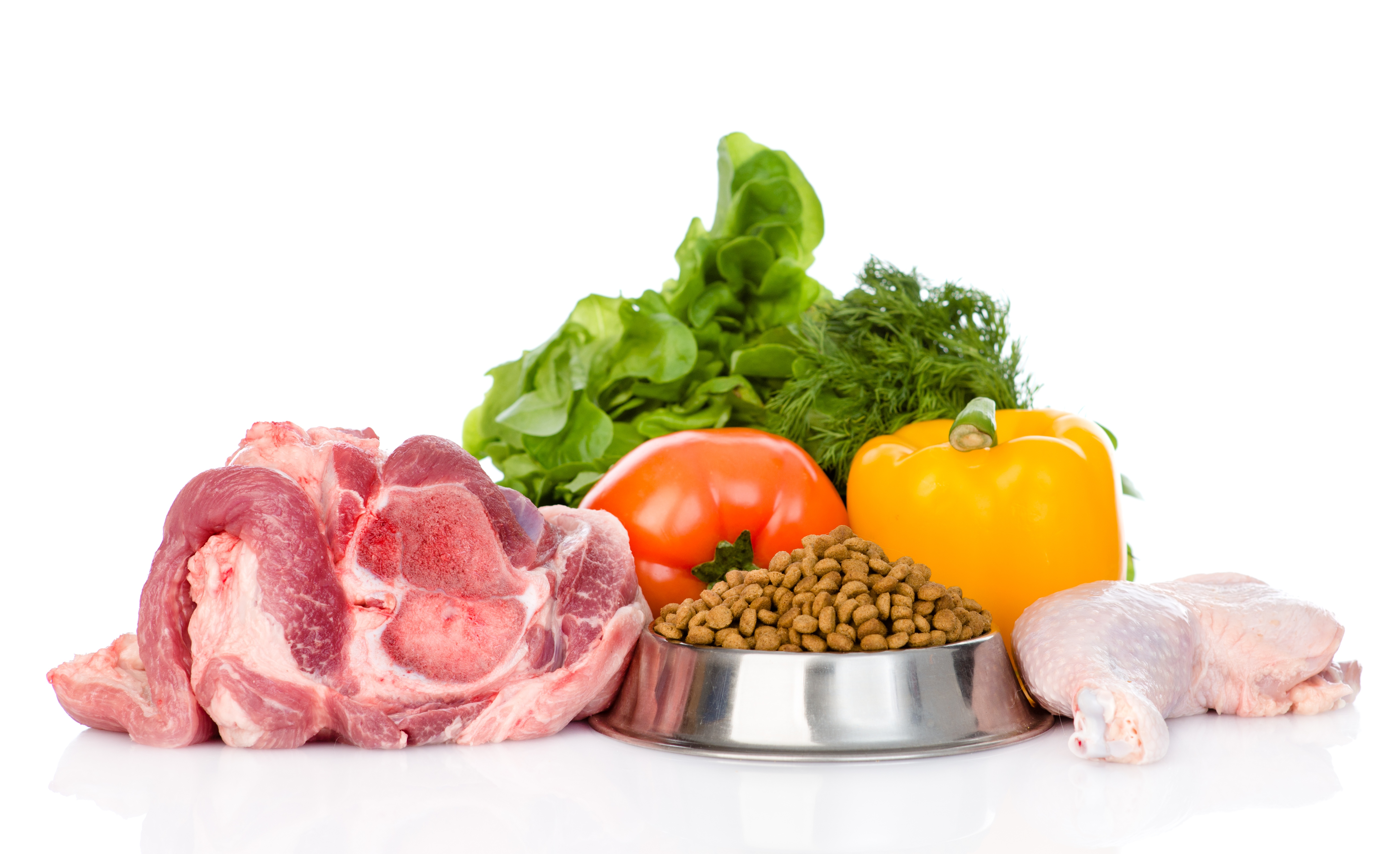 Companies have discovered that pet food is big business and as a result, there is an explosion of new diets out there for pets. According to the American Pet Products Association, pet owners spent approximately 23 billion (!) dollars just on pet food in 2015. Diets ranging from organic to raw to limited-ingredient varieties have hit store shelves and can make choosing the best diet for your pet a very daunting experience. So how do you know if they are as good as they say they are? Here’s a primer on what to consider next time you are shopping in the pet food aisle.
Companies have discovered that pet food is big business and as a result, there is an explosion of new diets out there for pets. According to the American Pet Products Association, pet owners spent approximately 23 billion (!) dollars just on pet food in 2015. Diets ranging from organic to raw to limited-ingredient varieties have hit store shelves and can make choosing the best diet for your pet a very daunting experience. So how do you know if they are as good as they say they are? Here’s a primer on what to consider next time you are shopping in the pet food aisle.
Organic diets
Organic diets for pets are another hot new trend. Many of these diets may indeed contain “human-grade” or “sustainably-sourced” ingredients however, there is no standardized definition as to what qualifies as organic when it comes to pet foods. Treats can be made with fully organic ingredients but when it comes to complete and balanced organic pet foods, there is no way to certify non-organically produced components such as vitamins, minerals, or other additives. Further, certifying organizations differ in their interpretation of USDA rules about whether a pet food qualifies as Certified Organic. Bottom-line, while high-quality organic pet foods exist, you can’t believe everything you read (or see on the label) and you may be wasting your money.
Limited-ingredient diets
Limited-ingredient diets, sometimes also called limited-allergen diets, are diets that have been created specifically to help animals with medical conditions including allergies or intestinal diseases (e.g., food allergy, inflammatory bowel disease). These diets are typically made with a single protein source and a single carbohydrate source. The thought is to limit things in the diet which can exacerbate the medical issue being treated, so often a novel protein source such as duck or rabbit is used. Unlike other diets, there is actual research that indicates that these diets are helpful in managing specific medical conditions. The type of diet that is best for your pet will depend not only on the condition being treated, but on your pet’s age, activity level, or concurrent medical problems.
Raw food diets
There is a lot of misinformation out there about this category of diets in particular. Proponents of raw food diets claim that these are superior to ‘processed’ diets because they are more like what our dogs and cats ate in the wild and are more nutritious than standard foods. Many of these superiority claims however have no scientific basis at all.
The other big consideration with these diets is the risk of illness that can occur due to bacterial contamination or transmission of parasites in uncooked meats. This risk is present not only for your pet, but for you and your family as well. This applies to all households but is particularly risky in households where there are elderly people, children, or people with poor immune systems.
If you are thinking of making a change to your pets diet or have questions about what diet is best for your particular situation, be sure to talk to your family veterinarian. And don’t believe everything you read on the internet!




